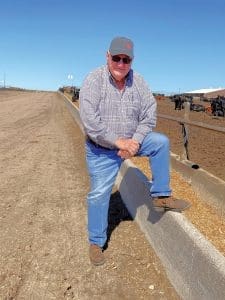
By Chris McClure Contributing Editor
Rural America, the home of rodeos, parades, Friday night football, homecoming, Old Settlers reunions, one small grocery store, a post office, sometimes a stop light, where everyone knows everyone else, and the youngsters are cautious about what they do and who sees them, because word will reach home before they do. Small towns in the country are also subject to politics. Anywhere people come together in organized groups – the Lions Club, city council, school board, Kiwanis or even churches – you run into politics.
It’s the big fish in a little pond syndrome that usually creates the problem. Someone doesn’t get their way so the rumors fly, factions divide and votes are cast. It is rough-and-tumble democracy exercising its mighty power as the tyranny of the majority. Blame is cast, feelings are hurt and suddenly there is a new school superintendent or perhaps a new church in town where another one split because one group didn’t like the music. It is sad, but it is the reality of rural America – and the rest of the country as well, just on a different scale where there are already more choices because they once went through the various splits and divisions.
Most folks in rural America don’t realize that it happens in the corporate world too. Often, power accretes to the most ruthless in their climb up the corporate ladder. It isn’t about serving their customers; it becomes a race to serve one’s own interests. Often it is driven by a board of directors that incentivizes the behaviors that push stock prices up but frequently cause a long-term lethargy to set in, which ultimately results in the company’s demise – either through merger or simple failure.
Politics obviously drives bad behavior among our elected officials all the way through the local, county, state and national levels. Power and influence drive decisionmakers to implement measures that frequently benefit themselves and those under whose influence they have fallen under at the cost of the constituencies who sent them there to represent their interests. In our political system, the tyranny of the majority is a matter of money – he who has the most money buys the greatest influence.
Yes, it happens in industries as well. It generally rears its ugly head in organizations designed to represent the interests of all. Sometimes, there is a balance that occurs, precarious though it may be, between the numbers of people whose interests are manifest in their voting power and the dollars spent by those who influence the issues brought before the body. Perhaps we have that in the cattle industry. The problem is that those who don’t get their way tend to split off and generate new organizations or simply ignore what is best for the industry and remain focused on their own selfish interests.
I personally subscribe to the concept that profit ultimately drives behavior and if industry is left unfettered by constraints, the most competent, the most innovative and the most profitable will succeed and thrive, and others will fail. I don’t necessarily advocate for no restraint, because there are instances where monopoly or monopolistic trade practices can limit entry to new participants. There needs to be some form of checks and balances that allow free entry and exit to an industry. If you haven’t done so recently – or perhaps never – go read Ayn Rand’s Atlas Shrugged.
By now, y’all probably wonder where I’m going with this. I suppose it is simply this: I believe the cattle industry is one of the last bastions where freedom exists in how we conduct our business. What happened when we saw packer profits grow to what many perceived as obscene levels? We suddenly had numerous efforts to bring additional competition into play. I wish the best to all those entrants, but I fear, based on historical precedent, that those expected high profits may be ephemeral at best. The point is that competition is still alive and well in the industry.
We must remain ever vigilant, however, to avoid the traps of government largesse, which eventually lead to greater control. Private capital, personal integrity and the avoidance of politically corrupting influences are paramount to retaining our independence as an industry. Now, if we can just figure out how we can all row in the same direction.







